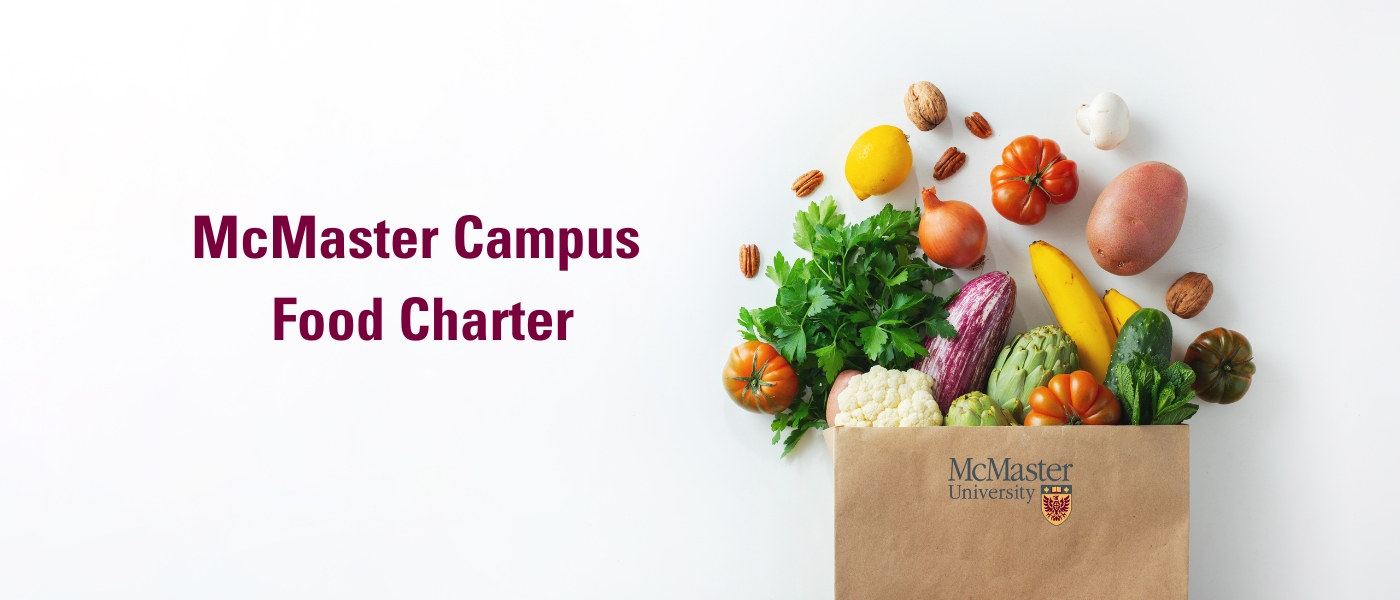What is the Food Charter?
The McMaster Campus Food Charter is still in a planning and consultation stage, but we are thrilled to let you know that it is in the works!
The McMaster Campus Food Charter (formerly known as the Food Strategy) was initiated by the McMaster Campus Food Council, with support from McMaster’s Student Wellness Centre and Hospitality Services. The Charter is supported and endorsed by the McMaster Okanagan Office of Health & Well-being. Progress on the Charter is regularly reported to the McMaster Campus Food Council, which provides advice and feedback.
The purpose of the Charter is to engage in a process of understanding the current state and needs of the McMaster community when it comes to food. We intend for the Charter to guide future action toward food sovereignty on campus. We are investigating food literacy, food sovereignty, food security, food accessibility, food safety, and the systems of food production, distribution, and consumption, among other factors.
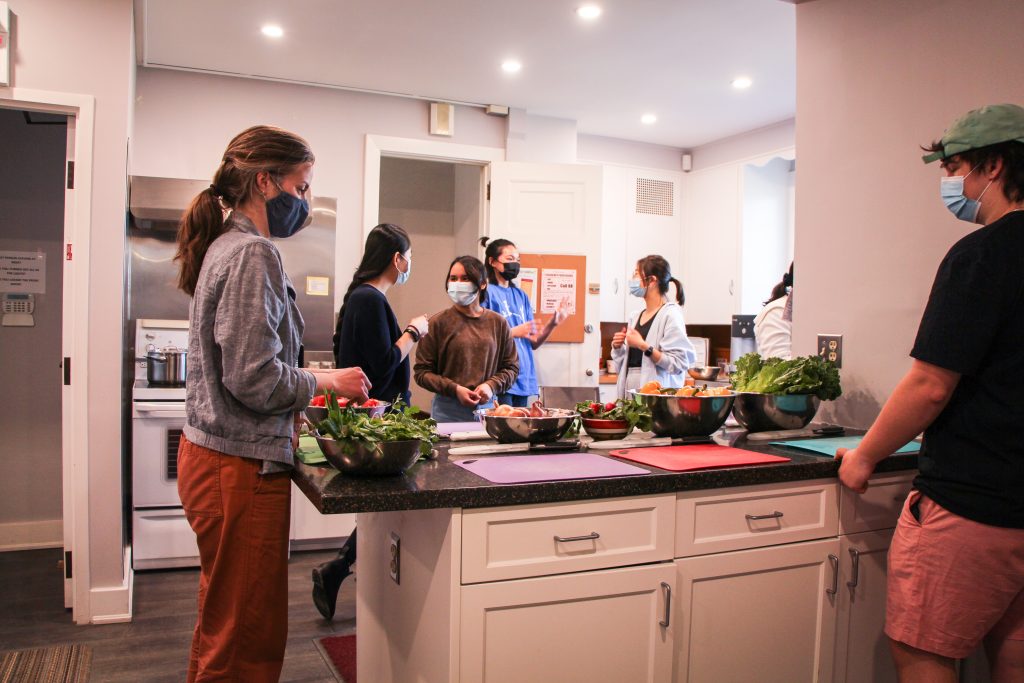
“Food sovereignty is the right of peoples to healthy and culturally appropriate food produced through ecologically sound and sustainable methods, and their right to define their own food and agriculture systems.”
– La Via Campesina
Objectives
-
To use participatory approaches and to engage the voices of students, staff, and faculty on campus
-
To develop trans-disciplinary collaborations and partnerships to advance food-related knowledge and action
-
To outline a plan integrating food, nutrition, and well-being opportunities and innovations for the McMaster campus community
Project Plans
We are using the working definition of food sovereignty from La Via Campesina as an important and helpful base for the development of the Food Charter. However, as we consult the community and create the Food Charter, we hope to interrogate and refine the definition in the context of McMaster’s specific realities and needs. Promoting food sovereignty helps to create a supportive campus culture and helps to ensure that members of our community have the resources to improve and expand upon their well-being (in addition to coping moment-to-moment).
In Summer and Fall 2022, we sought input on the current McMaster food systems through a series of focus groups and consultation sessions with individuals from a broad range of campus departments, services, clubs, and groups doing food-related work. In Winter 2023, we conducted a campus-wide survey to further poll students, staff, faculty, and alumni about their food system priorities.
We hope to produce a McMaster Food Charter document, with a summary of our findings and suggestions for food-related processes on campus going forward.


Indigenous Land & Food
Acknowledging and Reflecting Upon the Land That We Are on and Where Our Food Comes From
The food we buy and consume is sourced from Indigenous lands worldwide. When we buy, acquire, grow, prepare, consume, or share food on McMaster’s campus, we are engaging with food on the traditional territories of the Mississauga and Haudenosaunee nations. These lands are protected by the Dish With One Spoon wampum agreement, which encourages everyone living on the lands to share and collectively maintain them and their resources, including food and water systems. Some tenets of the agreement include leaving enough resources for others and protecting the vitality and health of the land itself. These traditional territories on which McMaster resides have been co-opted and occupied by settlers, and the Dish With One Spoon covenant frequently fails to be honoured.
The Food Charter team is committed to decolonizing its research approach and to highly valuing the perspectives of Indigenous communities and individuals at McMaster. Through the Food Charter, we hope to encourage reflection upon individuals’ personal access to food and other essential goods: food sourced directly from the land, food we buy at the grocery store, food we order online, and more.
McMaster’s Indigenous Circle
The McMaster Museum of Art’s Campus Architecture Tour describes the Indigenous Circle as follows: “On the edge of the circle, you will find symbols of three Haudenosaunee wampum agreements: The Dish With One Spoon, asking people to share the resources of the land and only take what they need; the Two Row, an icon of Indigenous and settler cultures living and growing together side by side, and the Friendship between the Haudenosaunee and the settler Europeans. Plantings in the space were sourced from Six Nations of the Grand River. The area demonstrates the role nature and outdoor spaces play in teaching and learning and signifies the importance of Indigenous knowledge to the growth of the McMaster community.” The three carvings were created by Woodland Memorial in Burlington.
The circle is known as Karahakon Kateweienstha (Learning in the Forest) in Mohawk and Nibwaajkaawin Teg (Place of Wisdom) in Ojibway.
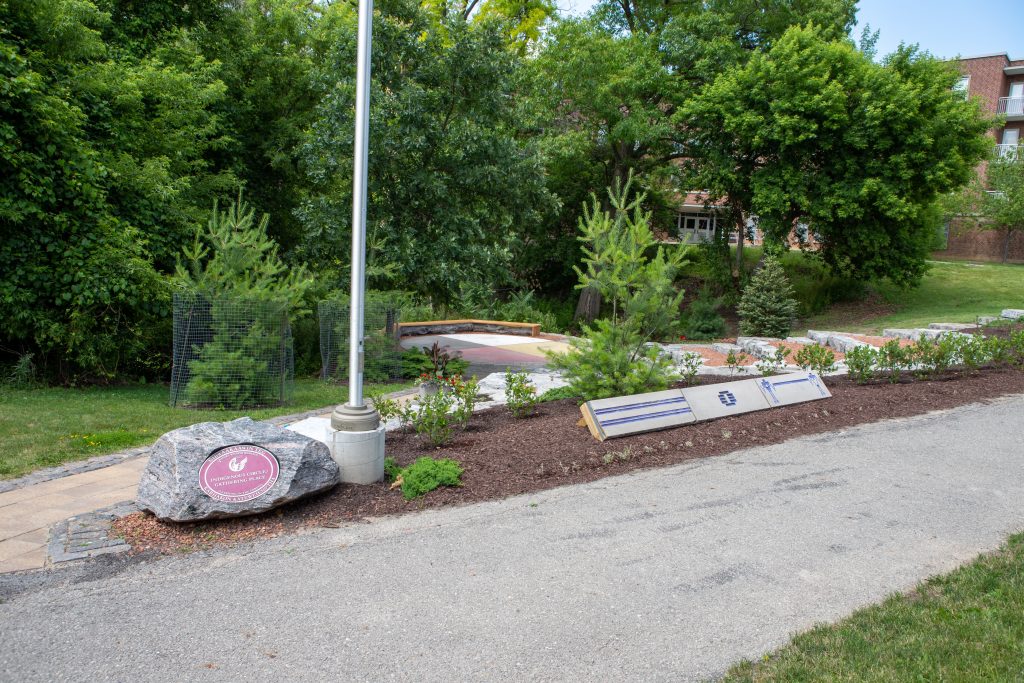
Resources
Current Resources
Learn about some of the on-campus resources that you can access if you are experiencing food insecurity, interested in getting involved with current food initiatives, or interested in learning more about food and its many impacts.
Information Box Group
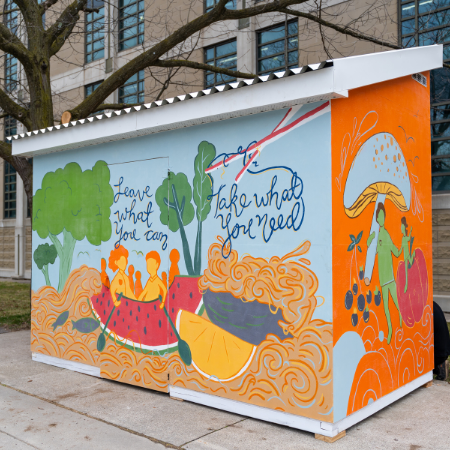
McMaster Community Fridge Follow McMaster Community Fridge on Instagram
McMaster Community Fridge is an outdoor food resource accessible to the public 24/7. It includes a freezer, fridge, and pantry. It can be found in front of Mills Library, facing Parking Lot B. Its motto is “take what you need, leave what you can.” A full donation guide is viewable on the McMaster Community Fridge Instagram profile. A representative from the fridge’s volunteer coordinator team is helping to advise on the Food Charter’s development.

MSU Food Collective Centre View Summary of FCC Programs
The Food Collective Centre (FCC) is a student-run, on-campus food bank and food security resource. They offer a confidential food support program called Lockers of Love, a fresh produce program called Good Food Box, and a cooking workshop program called Community Kitchen Cook-Alongs. The FCC also does advocacy and education work surrounding food access and food security. An executive from the FCC is helping to advise on the Food Charter’s development.
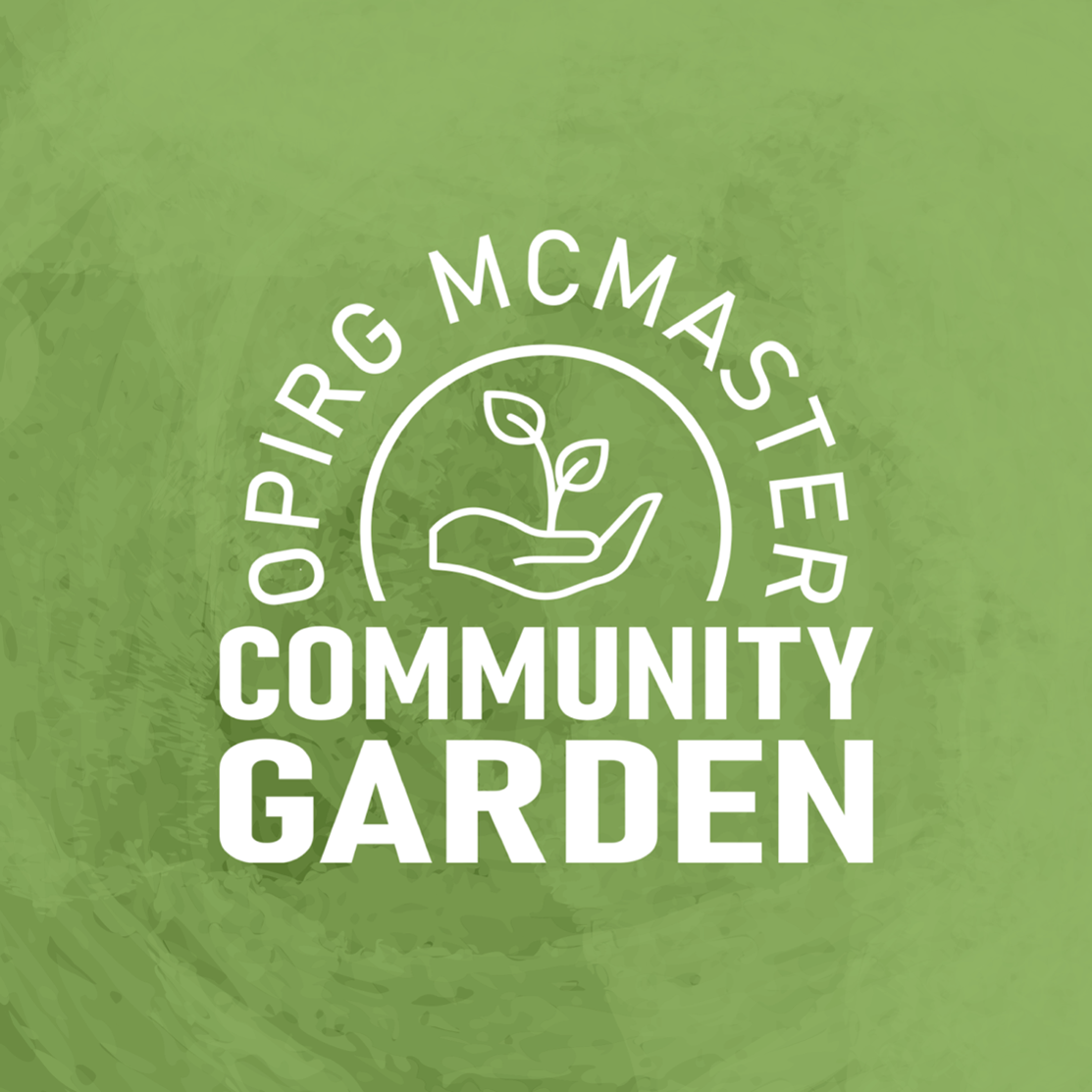
OPIRG-McMaster Community Garden View Mission Statement and Learn More
The OPIRG-McMaster Community Garden is located within the previous McMaster Teaching and Learning Community Garden beside GSB. They are committed to reducing barriers to access healthy food for members of the McMaster community and to providing a space for enjoying the therapeutic benefits of gardening. A representative from the OPIRG-McMaster Community Garden team is helping to advise on the Food Charter’s development.
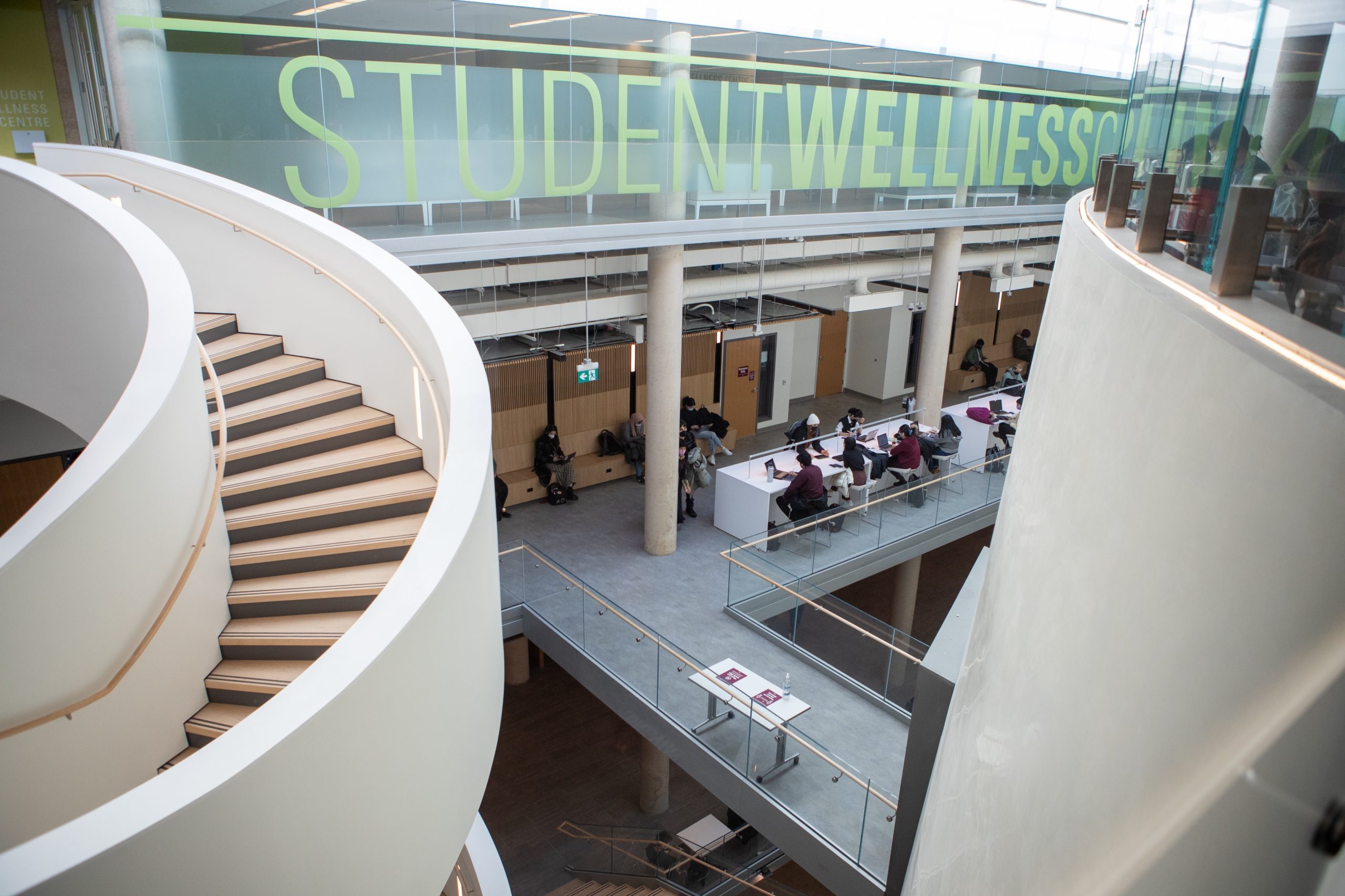
Student Wellness Centre Find SWC Food and Nutrition Resources
The Student Wellness Centre (SWC) offers a wide range of student services and resources to McMaster students, including food and nutrition support. They offer regular cooking classes and workshops, and extensive nutrition information and tips can be found on their webpage. The SWC is one of the key partners putting together the Food Charter, alongside the McMaster Okanagan Office of Health & Well-being.
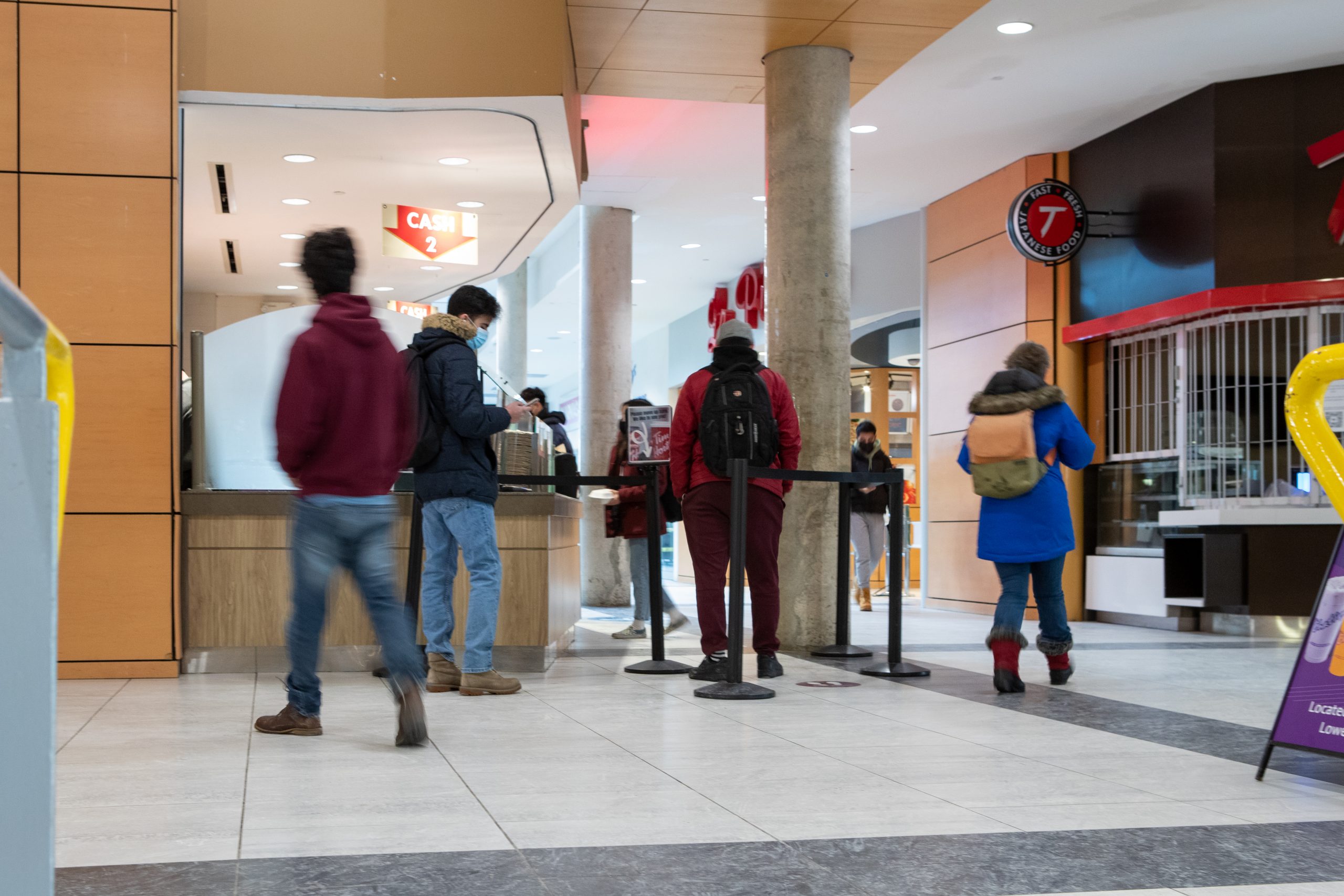
Hospitality Services Find Information about Nutrition and Dietary Restrictions
McMaster Hospitality Services is committed to making food accessible to students, staff, and visitors on campus. They offer meal plans, operate restaurants and cafeterias on campus, and offer resources related to allergies, dietary restrictions, and nutrition generally. Hospitality Services is one of the key partners putting together the Food Charter, alongside the McMaster Okanagan Office of Health & Well-being.
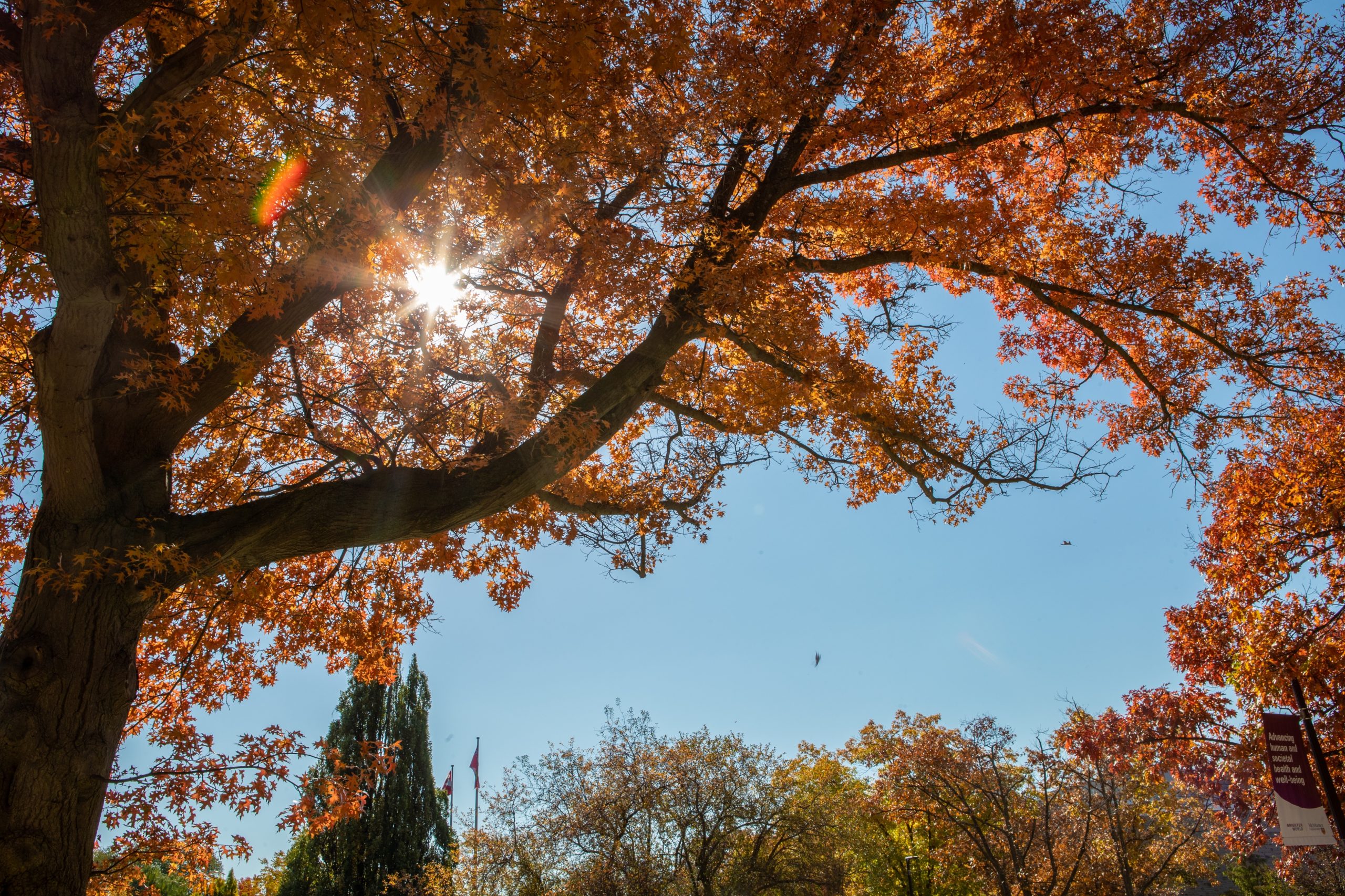
McMaster Sustainability Strategy View the Sustainability Strategy Report
McMaster recently released its first university-wide Sustainability Strategy, which was developed based on community input. The McMaster Campus Food Charter is partly inspired by the priorities expressed in the Sustainability Strategy. Food and food sovereignty are relevant to several of the key drivers identified by the Sustainability Strategy. The plan provides strategic direction related to sustainability through 2026 and beyond.

